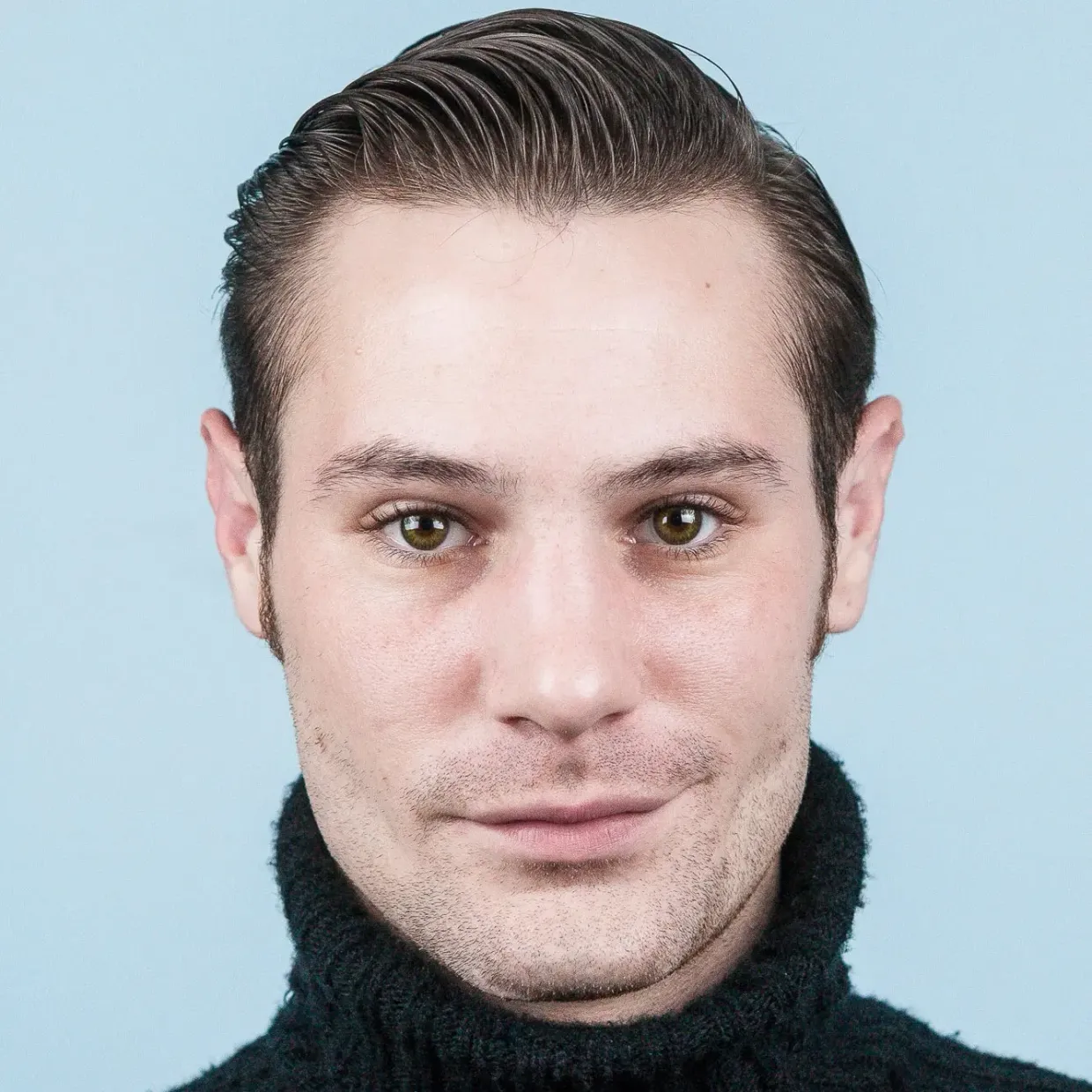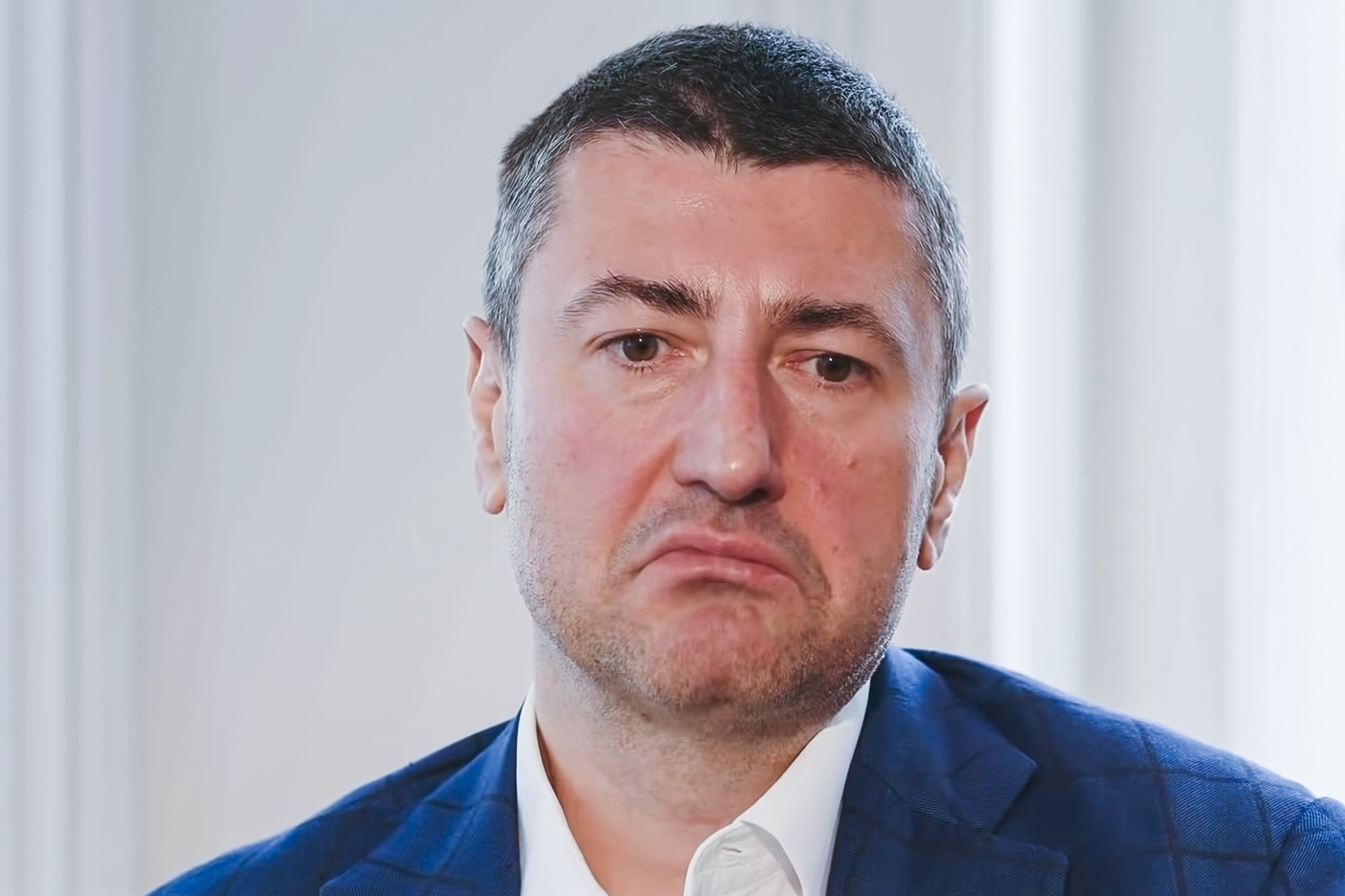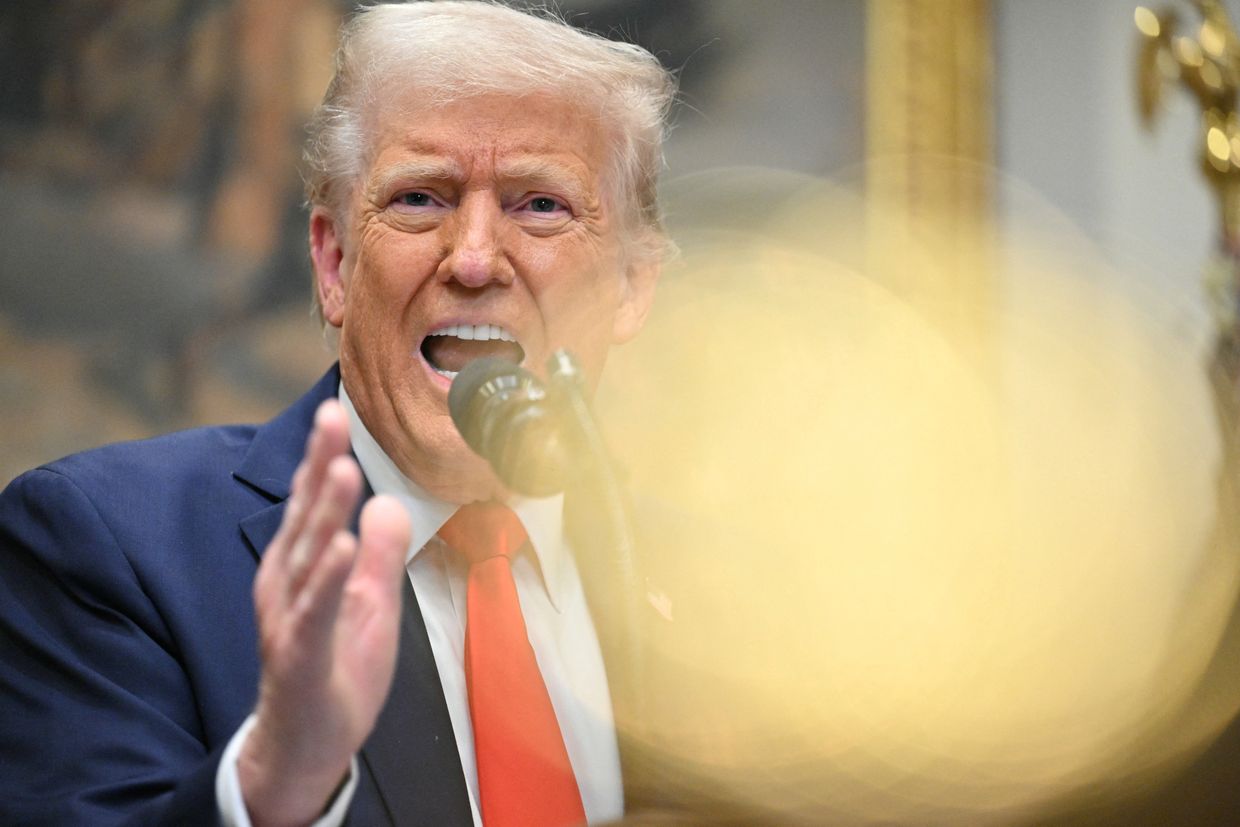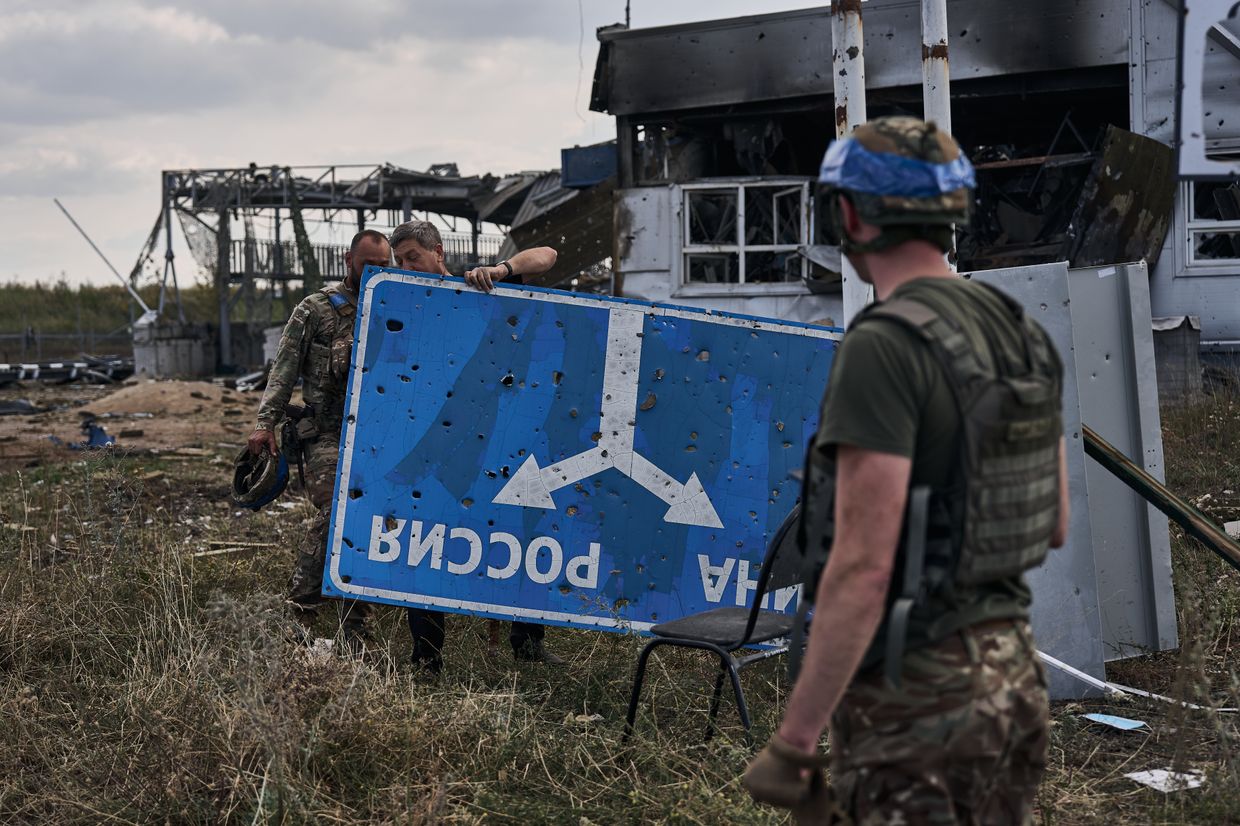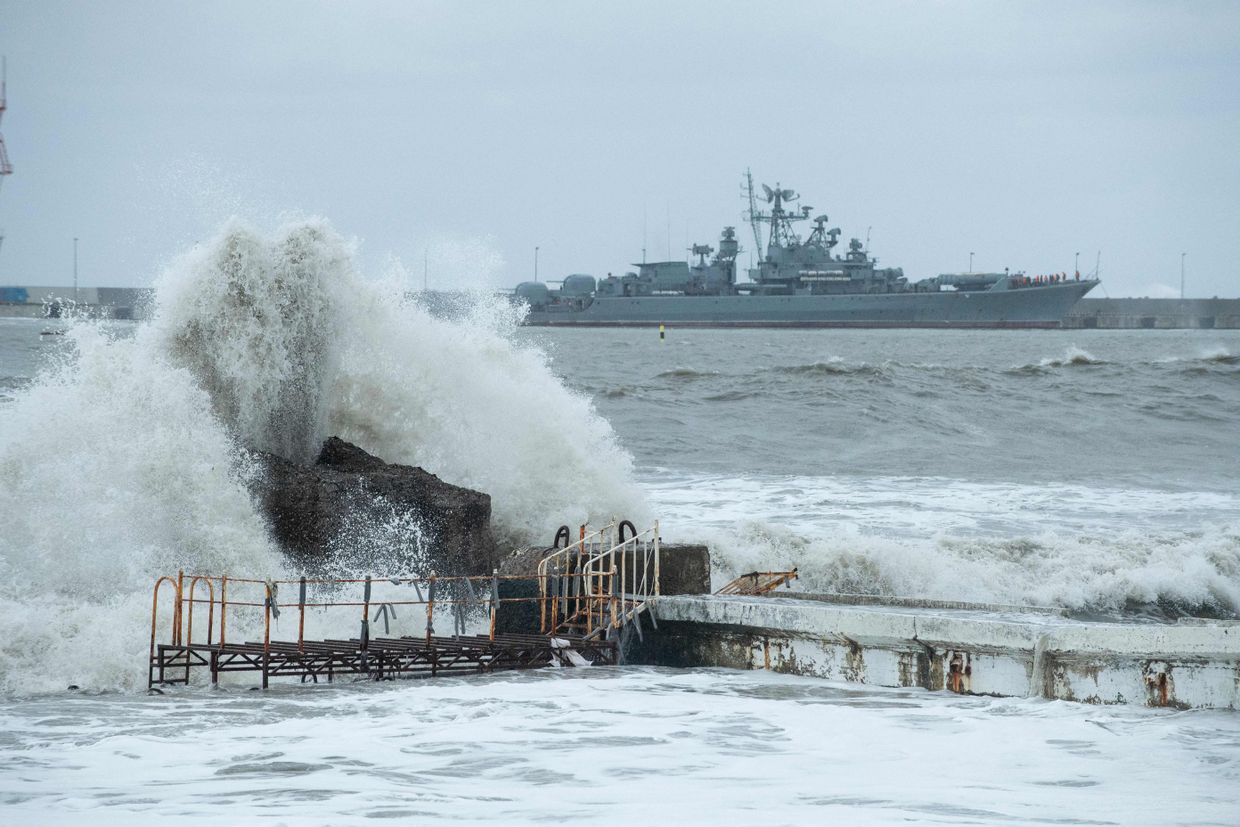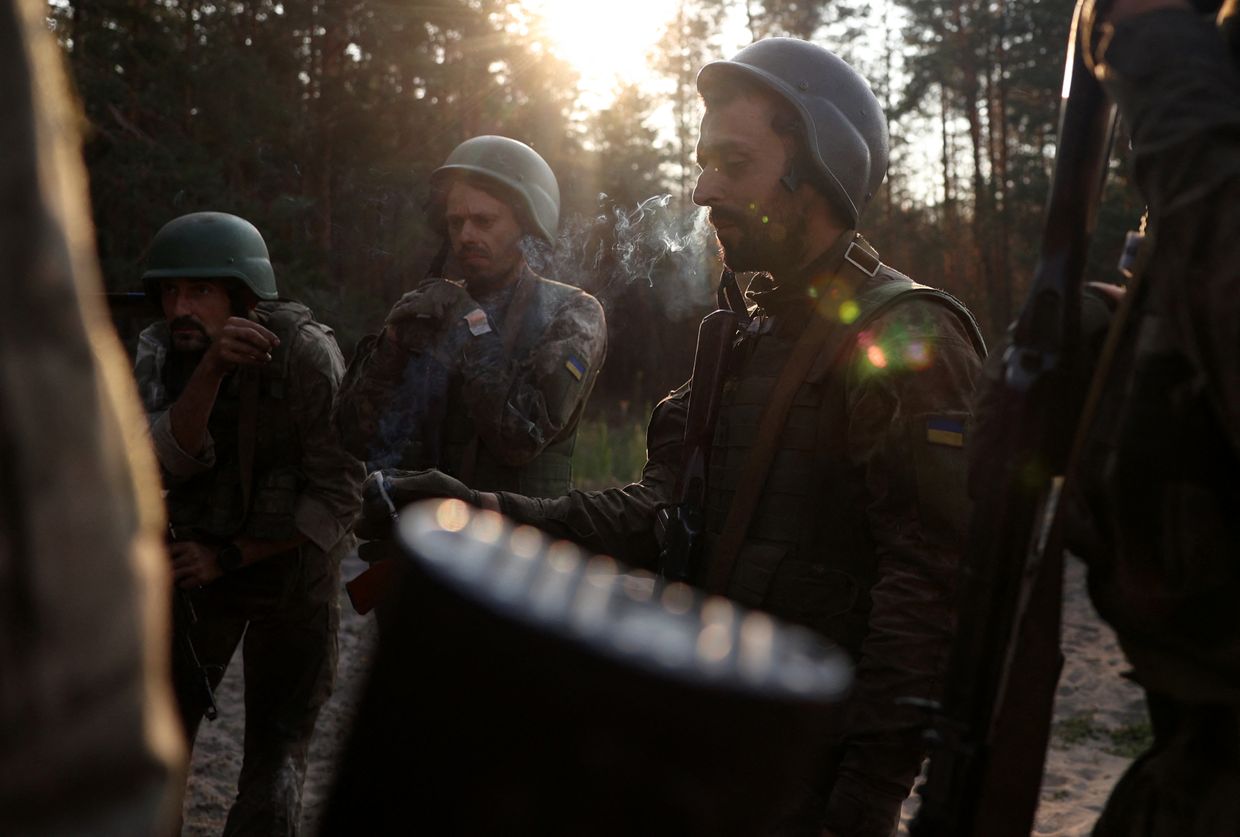The billion-dollar court case against exiled tycoon Oleh Bakhmatyuk is a depressingly familiar reminder of Ukraine’s elite-level embezzlement problem.
The former billionaire is being sued by U.S. investment fund Gramercy, which alleges that Bakhmatyuk, the majority shareholder and board chairman of agricultural giant UkrLandFarming, siphoned $1 billion out of the company in order to avoid paying its debts.
Bakhmatyuk has prior form with allegations of large-scale fraud: In November 2019 he was accused by the National Anti Corruption Bureau (NABU) of embezzling a $49 million stabilization loan given to his bank by the National Bank of Ukraine (NBU) in 2014.
Bakhmatyuk, who has lived in Vienna since 2019, did not respond to the Kyiv Independent’s request for comment.
This story isn’t unique. Before 2014, many Ukrainian banks, predominantly owned by oligarchs, were used to launder money and illegally enrich their owners.
After the economic collapse following Russia’s invasion of Crimea in March 2014, many banks went bust, revealing the extent of corruption, mismanagement, and fraud the Ukrainian banking system faced prior to the crisis.
Now, the National Anti-Corruption Bureau of Ukraine (NABU) is trying to track down the money allegedly stolen from Ukrainian taxpayers. Despite this, the state has achieved little in its quest to return Ukrainians their stolen funds.
Bakhmatyuk’s eggs
Gramercy filed a complaint in a U.S. federal court on Dec. 7 against Bakhmatyuk and U.S. businessman Nicholas Piazza for allegedly siphoning $1 billion out of UkrLandFarming.
The complaint, filed under the Racketeer Influenced and Corrupt Organizations (RICO) Act, includes claims of fraud, tortious interference, aiding and abetting, as well as civil conspiracy.
Gramercy, a major lender to UkrLandFarming, alleged that Bakhmatyuk secretly took the funds out of the agricultural company to avoid paying its debts to the fund.
UkrLandFarming's total debt burden is currently estimated at $1.65 billion, of which $1.25 billion is held by foreign creditors.
The fund accused Bakhmatyuk of organizing a "complex, multi-faceted scheme" to keep control of the company and avoid paying back lenders.
Gramercy has also started a separate proceeding in Cyprus, where Bakhmatyuk allegedly transferred the money. The company is looking to force an international freezing order on his assets.
Unpunished bank fraud
This isn’t the first time that Bakhmatyuk, who was worth $1 billion a decade ago before a decline in fortunes, has been sued for embezzlement. Moreover, Gramercy’s complaint is closely linked to the businessman’s past troubles.
Like many Ukrainian businessmen before 2014, he allegedly used his now-defunct banks VAB and Financial Initiative to give his own companies generous insider loans.
When VAB was found insolvent in November 2014, its collapse forced Bakhmatyuk’s UkrLandFarming to take on huge loans from eternal lenders, thus setting the path to its current $1.6 billion debt.
In a 2015 interview, Valeria Gontareva, then the NBU governor, said that VAB’s proportion of insider loans was 64%, while Financial Initiative’s was 96%.
Bakhmatyuk admitted in 2019 that some insider loans did take place, but blamed the bank collapses on Ukraine’s financial system and the fall of the hryvnia in 2014.
Forty days before it was found insolvent, VAB received a $49 million stabilization loan from the NBU. In 2019, the NABU charged Bakhmatyuk with embezzling the loan.
The investigation alleged that Bakhmatyuk conspired with a top National Bank official to illegally get the loan, then immediately transferred the money to offshore companies.
In November 2019, the NABU arrested seven people in the VAB Bank case. Among them was Alexander Pysaruk, head of Raiffeisen Bank Ukraine’s office and former deputy head of the NBU.
According to NABU, Pysaruk was the official who allegedly helped Bakhmatyuk obtain the stabilization loan while working at the NBU. Pysaruk denied the charges and was later released on a $200,000 bail.
Pysaruk continues to head Raiffeisen’s operations in Ukraine despite the ongoing case. Pysaruk, the National Bank and Bakhmatyuk denied wrongdoing.
Pysaruk has said that the loan issuing was legitimate. It came at the peak of Ukraine’s 2014 financial crisis when there were serious concerns about economic stability.
Another major agroholding, Mriya, had already been liquidated, and the National Bank worried that a VAB collapse would spill over and potentially bring down UkrLandFarming, which employed 30,000 people at that time.
In October 2019, just a month before the NABU arrests, Bakhmatyuk moved to Vienna. The Austrian capital has been a popular destination for wealthy Ukrainian businessmen seeking to avoid prosecution at home.
Over the past two years, the NABU and the Special Anti-Corruption Prosecutor’s Office (SAPO) have fought to keep the case against Bakhmatyuk alive.
Courts closed the case twice in 2019, but it was reopened by the NABU both times, which Bakhmatyuk considers judicial harassment by NABU Head Artem Sytnyk.
In November 2020, the Prosecutor’s Office rejected an extradition request for Bakhmatyuk from the NABU, claiming that it contravened Ukrainian and international law.
The exiled 47-year-old businessman still owns a majority stake in UkrLandFarming, which is the country’s largest egg producer, generating about 1% of Ukraine’s gross domestic product.
In May 2021, UkrLandFarming began printing the slogan “Sytnyk, go away!” on 1 billion eggs which it sends to supermarkets.
UkrLandFarming claimed it was forced to fire 13,000 people, shut down 29 cattle farms and 8 egg production sites because of the ongoing NABU investigation against the controversial tycoon.
Bakhmatyuk denies any wrongdoing.
Other bank frauds
Bakhmatyuk’s example is far from unique: Ukraine witnessed several large-scale bank frauds.
Controversial oligarchs such as Ihor Kolomoisky and Kostyantin Zhevago currently face high-profile embezzlement charges after allegedly siphoning millions of dollars from financial institutions they used to own.
According to forensic company Kroll, PrivatBank, Ukraine’s largest bank, had $5.5 billion missing from its ledgers at the time of the bank’s nationalization in December 2016.
The losses occurred when the bank was owned by Kolomoisky and his business partner Hennadiy Boholyubov.
PrivatBank is now suing Kolomoisky in Israel, Ukraine, the U.K, and the U.S.
He also faces numerous civil lawsuits in several jurisdictions, including the U.S., for alleged money laundering through real estate purchases with PrivatBank money.
Kolomoisky denies the accusations of wrongdoing and has been running a never-ending legal battle against Privatbank’s new ownership.
Meanwhile, Zhevago, a Ukrainian mogul and former lawmaker, is suspected of embezzling $113 million from his now defunct Finance & Credit Bank. In Ukraine, he was charged with embezzlement in September 2019.
Officials say that an offshore company controlled by Zhevago opened credit lines in foreign banks, with Finance & Credit Bank as a guarantor. When the offshore company failed to fulfill their obligations, foreign banks seized the collateral, including $113 million from the bank’s accounts. After that, the bank was declared insolvent.
In July, Interpol placed Zhevago on the international wanted list for alleged embezzlement.
Zhevago’s press service denied all allegations.
